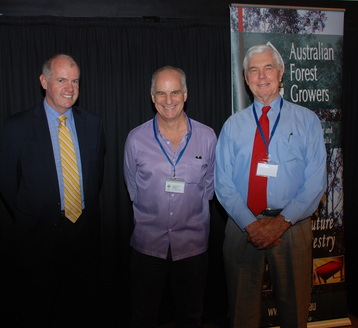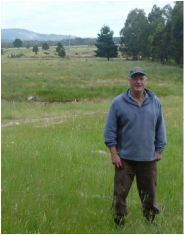
In the face of global warming and “converging insecurities,” they agreed forests were an essential component of healthy, sustainable agricultural and biodiverse landscapes.
Last year Michael Jeffery was appointed by the Prime Minister as Australia’s Advocate for Soil Health. He highlighted the role of forests in what he called the ‘small water cycle’, through transpiration by leaves and ensuring the optimal filtration of water into the soil. Where farmers holistically managed soil, water and biota, they should be adequately recompensed for their custodianship, he said.
Mick Keogh agreed that the nation needs to develop stewardship arrangements for biodiversity conservation. He acknowledged that growing trees as part of a rural enterprise helps with risk management as an alternative source of income; and growing trees has side benefits in water and shade management.
Andrew Campbell, well known to many farmers as one of the founders of Landcare, pointed out that “converging insecurities” were making it ever more imperative to link management of energy, water, biota and food production. The direct impacts of climate change are increasing. The era of cheap, easily extracted fuels is running out. For the first time in history, we will have to face increasing food production without clearing land: “We will have to do more with less land, less energy, less water.”
“We need a third agricultural revolution,” he said. Its technical elements would include biodiverse carbon sinks “to offset unavoidable emissions” and on-farm systems producing 2nd generation, lignocellulosic bioenergy. Echoing Michael Jeffery, Andrew Campbell believed the revolution would have to include closed loop farming systems (embracing water, energy nutrients and carbon); and better understanding of soil carbon and microbial activity.
Integrating 30% of mixed species trees and habitat into farms was the way of the future, he said.
